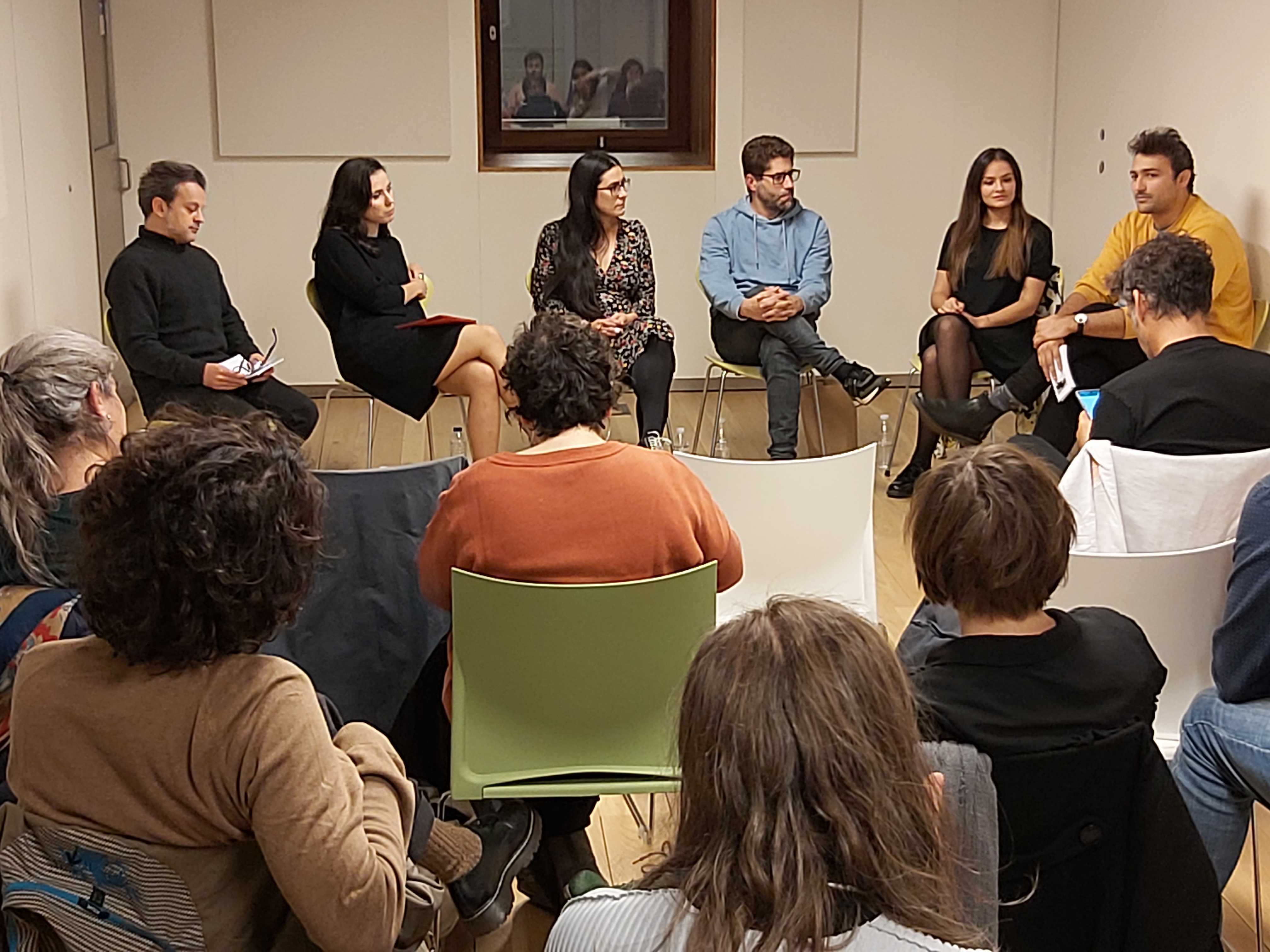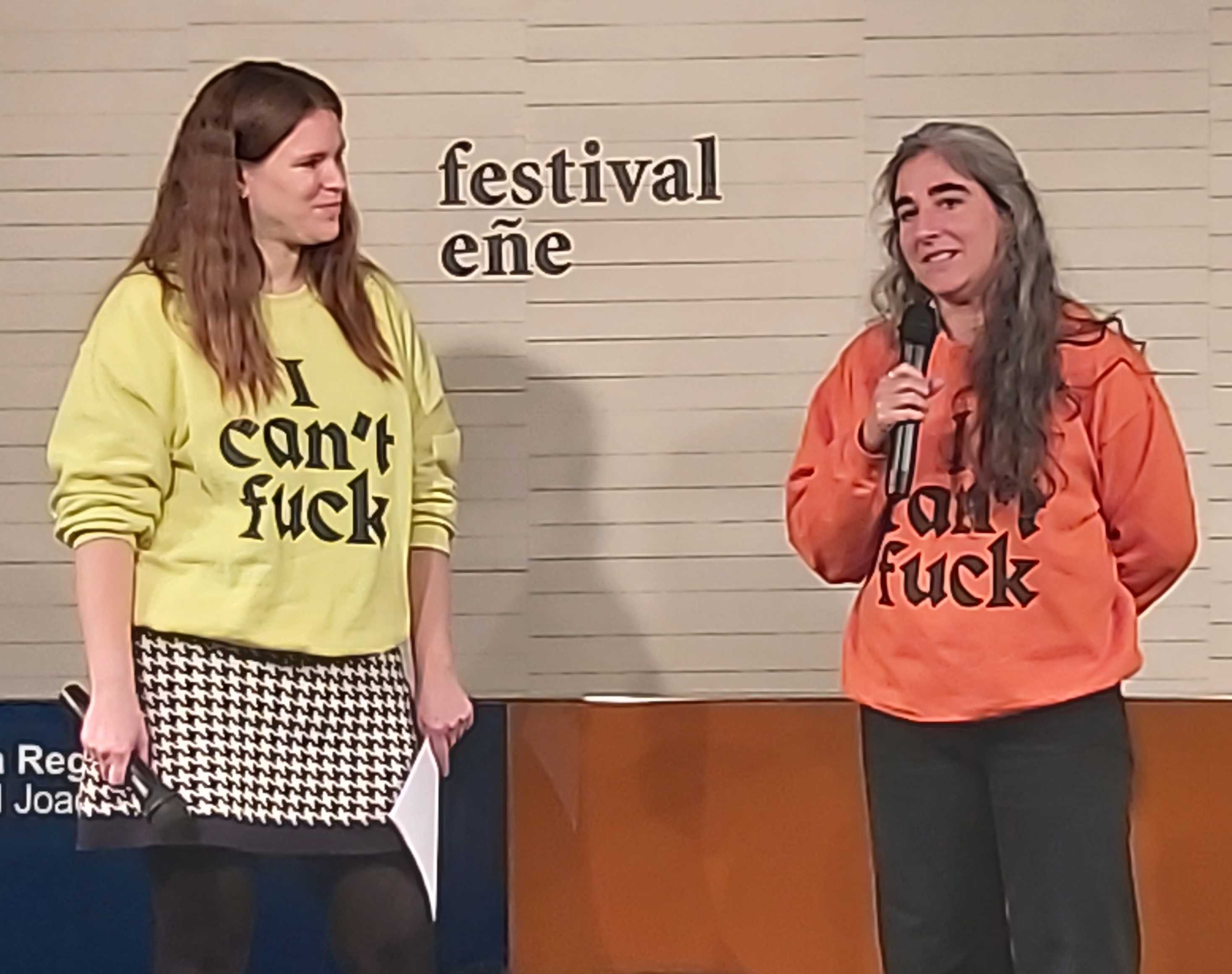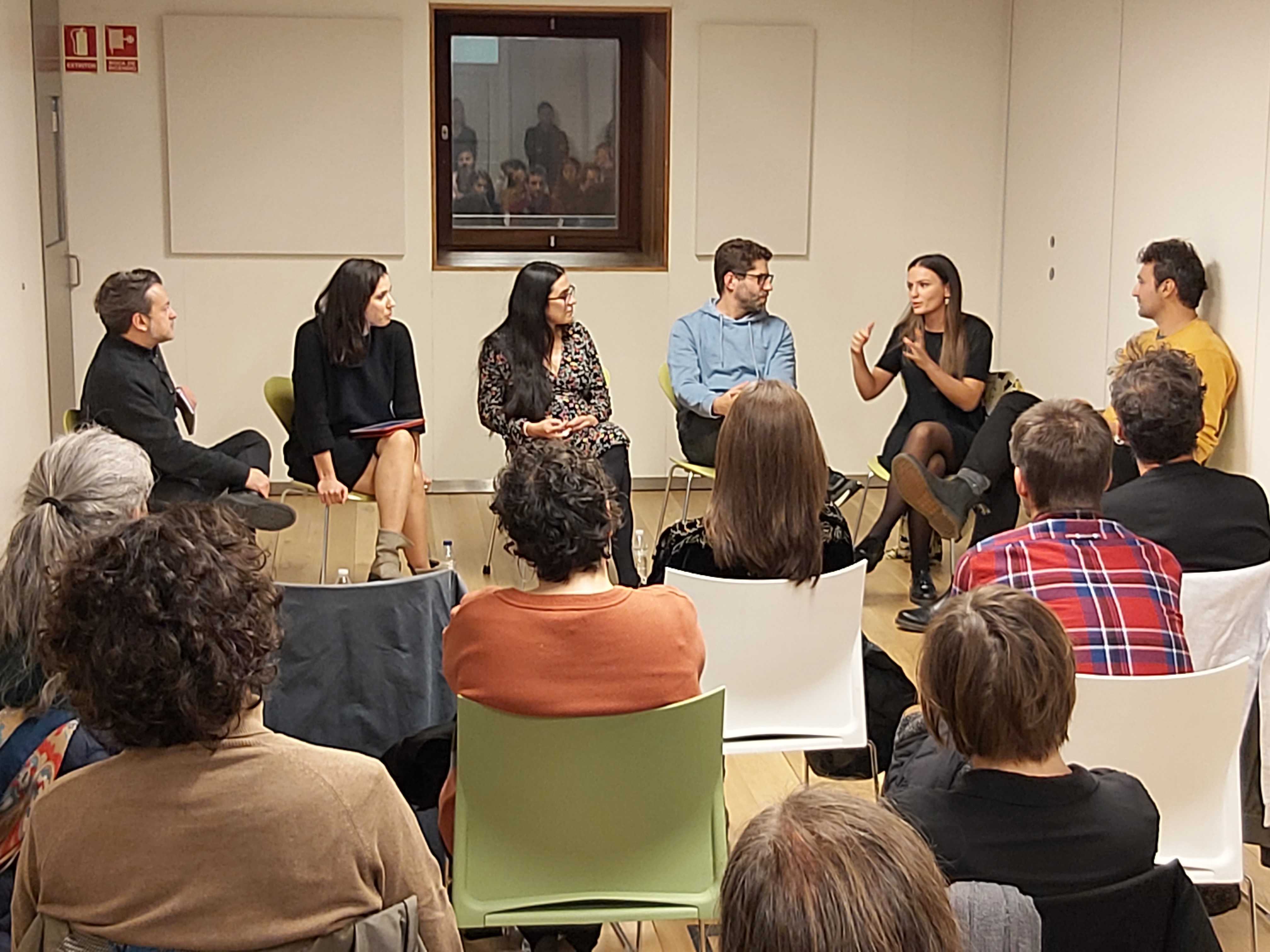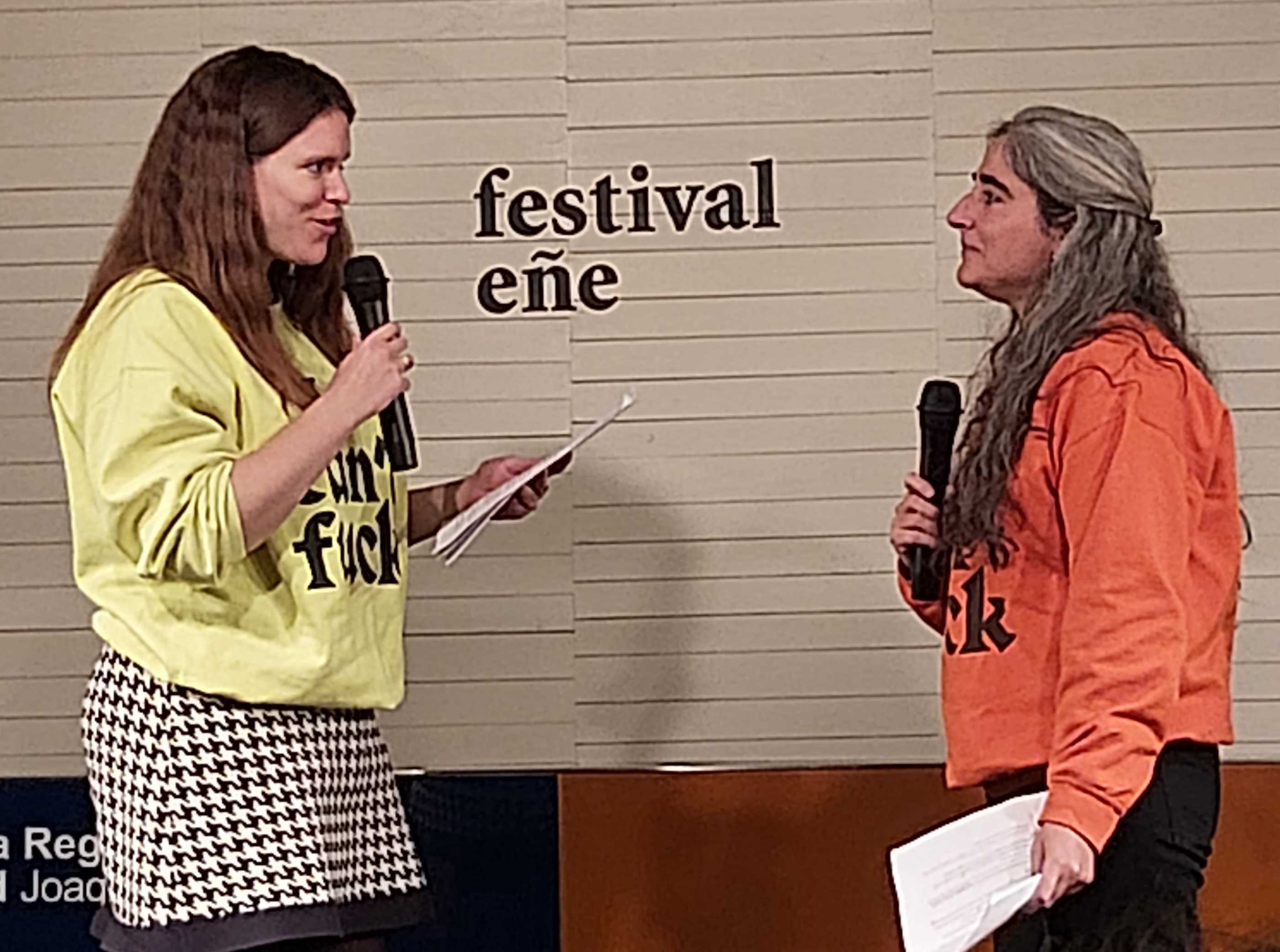Impressions from Eñe Festival – By Luciana Cezara Moisă, Translator RO-ES
The out-of-the-ordinary rain in Madrid was no obstacle for the CELA participants to attend the Eñe Festival on November 12th. All of the translators and authors were hosted at the Joaquín Leguina Library, a former brewery in the heart of the Spanish capital. Outside the building, the guests were welcomed by a music quartet playing some jazz with Caribbean and afro influences. It was the perfect introduction to a literary performance: some saw it as a dance or a discussion, while others saw it as a tête-à-tête between translators and writers. The aim was to prove to the audience that the source text and its translation can work in perfect symbiosis.
Between rehearsals, coffee and excitement, show time finally came. A three-act performance delivered in three different languages and presented by three duos. Written by Fabrizio Allione, Alexandru Potcoavă and Alma Mathijsen the Italian, Romanian and Dutch texts came to life. The suitable match on stage for the authors were their Spanish translators: Inés Sánchez Mesonero, Daniela Martín Hidalgo and I.
TORNANDO A CASA
First to perform were Inés Sánchez Mesonero, the translator from Italian, and the writer Fabrizio Allione. "Returning home" tells the story of Ana and Davide, a young couple that struggles with a drifting marriage and the parenting of a child. Inés played Ana's part in Spanish while Fabrizio played Davide in Italian.
REUNIUNEA
The Romanian-Spanish duo, Alexandru Potcoavă and I, performed a monologue packed with a dose of caustic humour. "The Reunion" is about a news anchor visiting his hometown for a high school alumni gathering. The main character reveals his uneasiness about returning home. The audience travelled with him, went to the party and had dinner with his classmates. In the end, everyone ran away with the TV host from the phantoms of his past.
DE EVOLUTIE VAN EEN KIES
Alma described with humour and pain the trauma she went through after having a tooth extracted. With a display of expressions, she brought her text into a new perspective. The sense of humour between the lines was already obvious at the beginning, but it peaked once she had fired at the audience the story behind I can't fuck. You could find that sentence printed on the bright sweatshirts, worn by Daniela, the translator, and the author during their interpretation. At the end of the text, the morphine they gave Alma for her pain ended up being the cherry on the cake that lead to the applause of a thrilled audience.
Over beers and tapas following the bilingual event, we all gathered to recharge our batteries and prepare for the informal discussion in the afternoon. Spanish translators Daniel Ordóñez (Czech), Sara de Albornoz Domínguez (Portuguese), Ivana Palbrik (Serbian), and Carmen Clavero Fernández (Dutch) were the main protagonists. They shared their concerns, how they deal with the publishing of projects and the working conditions they face daily.
At the start of the discussion, they talked about their beginnings and the reasons that led them to translation. The four brought up some linguistic challenges a translator faces in everyday work (slang, idioms, etc.). If anything, it was clear that they make difficult and imperfect decisions when translating. Sometimes it takes them days or weeks to find the most suitable and appropriate term. The word might cross their minds in the most unexpected places, like in the shower or even in bed.
When asked about the need to translate directly from minor languages, everyone agreed that by using a pivot language "we miss out the flavour and spices", Ivana stated. Carmen pointed out that English has too much dominance within the market: "We're missing out on works of comparable or higher quality". And Ivana concluded the question with another gastronomic metaphor which eventually became the recurring element within the discussion: "We need fewer burgers and more fusion cuisine".
Of course, there was also a place for demands. The translator's name must appear on the covers and in the media, but it is equally vital for the translators to benefit from fairer conditions and compensation for their work. Sara emphasised this claim to end the prevailing insecurity in the industry.
Even at the closure of the event, there was room for humour. Fellow translators joked that if the CIA were to look into their browsing history, they could get into legal trouble. Usually, the research process of a translation leads you to some very inappropriate web pages. The public was invited to ask them some questions, and the talk ended with a final remark by Ivana. While it's known that sometimes translating is a lonely job, the CELA project brought her a new and thrilling experience shared with colleagues, writers and mentors. As you can see, dear reader, translations are alive. They can be performed, discussed or even become food (as a metaphor, of course).



